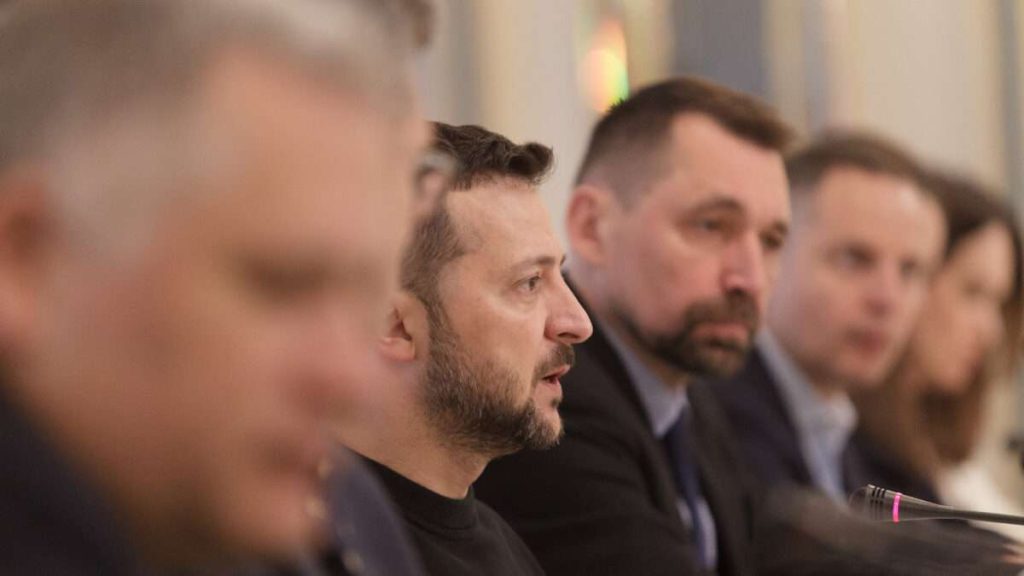Little hope left: In Ukraine, the situation is growing increasingly dire. The two-plus years of Russian invasion have depleted military resources; the $60.8 billion aid package approved by U.S. lawmakers last month, and stalled by several months of congressional infighting by Republicans, has not reached Ukraine yet.
“All of our forces are either [in Kharkiv] or in Chasiv Yar,” said Gen. Kyrylo Budanov, the head of Ukraine’s military intelligence agency. “I’ve used everything we have. Unfortunately, we don’t have anyone else in the reserves.”
Chasiv Yar is some 100-plus miles south of Kharkiv, the country’s second-largest city. Winning it would be Russia’s “most operationally significant advance since the first summer of the war in 2022,” reports The New York Times. “If Chasiv Yar falls, the Russians will be able to use its hilltop position to batter the key remaining Ukrainian-controlled cities in the Donetsk region: Kramatorsk, Sloviansk, Druzhkivka and Kostiantynikva,” reports The Guardian.
Ukrainians “admit they are outgunned and outnumbered by an enemy with combat jets and seemingly unlimited firepower,” adds The Guardian. “The Russians are willing to tolerate huge losses of tanks and men to capture tiny settlements, deploying infantry in what are known as bloody ‘meat assaults.'”
Secretary of State Antony Blinken is in Ukraine right now, meeting with Ukrainian President Volodymyr Zelensky. A senior U.S. official, speaking to the Times about the meetings, refused to “draw a direct connection between the delayed aid and Russia’s gains near the city of Kharkiv” but “[made] clear that the gap in funding had left Ukraine, whose military is starved for ammunition and other critical equipment, weakened.” Zelensky, in the meetings with Blinken, emphasized how Ukraine’s air defense is weak—something Russia is exploiting, as Vladimir Putin’s troops continue to pulverize the country.
It’s always a little crazy when American outlets and politicians (President Joe Biden included) blame Russia’s advancement on U.S. lawmakers’ inability to agree on an aid package for Ukraine; of course, these things are connected, but it’s also a normal and even healthy part of the democratic process for massive cash infusions to other nations’ war efforts be deliberated over, not automatic.
Meanwhile, things are so bad there that Estonia is reportedly mulling sending troops in to serve in non-combat roles in western Ukraine and free up forces to go fight on the eastern front. It’s really not clear how any of this ends, but Ukraine is signaling that they can’t hold off Russian troops forever, let alone much longer.
Scenes from New York: This book (my subway reading) is excellent. Also, I am in it (called by a different name). Props if you can figure it out.
(Liz Wolfe)
QUICK HITS
“In mid-March, the U.N. Children’s Fund stated that 13,450 children had been killed in Gaza, citing figures from the Hamas-run Gazan Health Ministry,” according to Jewish News Syndicate. But “last Wednesday, the U.N. Office for the Coordination of Humanitarian Affairs (OCHA) released updated casualty figures. Some 7,797 Gazan children had died in the war as of April 30, it said—a roughly 42% drop from the mid-March numbers.” “What Trump could do in foreign policy might surprise the world,” writes Curt Mills (executive director of The American Conservative and once and future Just Asking Questions guest). Kamala Harris channeling her inner cop:
.@VP at AAPI event (per pool): “We have to know that sometimes people will open the door for you and leave it open. Sometimes they won’t, and then you need to kick that fucking door down.”
— John Bresnahan (@bresreports) May 13, 2024
“Falling birthrates come with huge implications for the way people live, how economies grow and the standings of the world’s superpowers,” reports The Wall Street Journal. “An economy with fewer children will struggle to finance pensions and healthcare for growing ranks of elderly. South Korea’s national pension fund, one of the world’s largest, is on track to be depleted by 2055. A special legislative committee recently presented several possible pension reforms, but there’s only a short window to act before the next presidential election campaign heats up.” Beach Boys’ Brian Wilson, who has dementia, has been placed in a conservatorship by a judge in Los Angeles. “Public school libraries were more likely to carry liberal than conservative books, with liberal books accessible in an average of about sixty schools and conservative in twenty‐one. Neutral books, such as fantasy, dominated both, carried in an average of 207 libraries,” writes Cato’s Neal McCluskey, who details how his team attempted to track which books are stocked by public school libraries and whether they tend to be ideologically balanced. “Given our sample size, the difference between liberal and conservative books is right on the border of being able to confidently assume we have captured a true imbalance.” Bloomberg on how Singapore got rich. “I’m not sure I would have the same success with breastfeeding if I had had my first baby more recently,” writes Bethany Mandel for The Free Press. “La Leche League’s meetings are now also open to biological men. All attendees have to do is say they’re transgender or nonbinary, and they can come and watch women baring their breasts while obtaining breastfeeding support.”
The post Send in the Estonians? appeared first on Reason.com.






